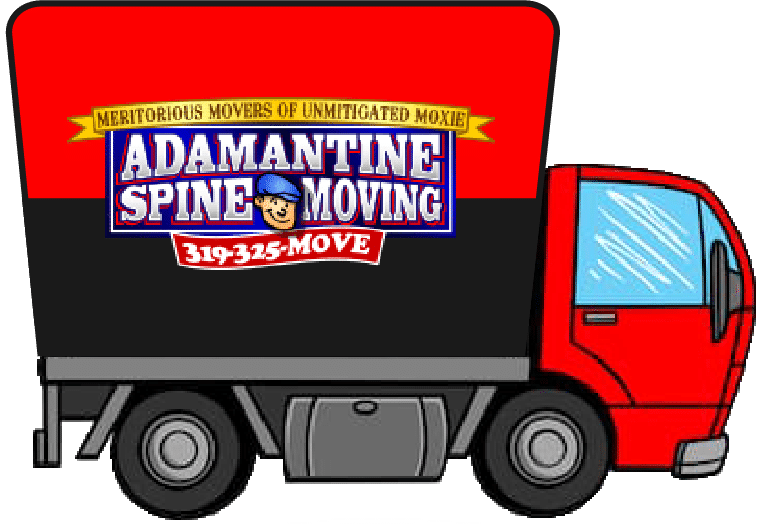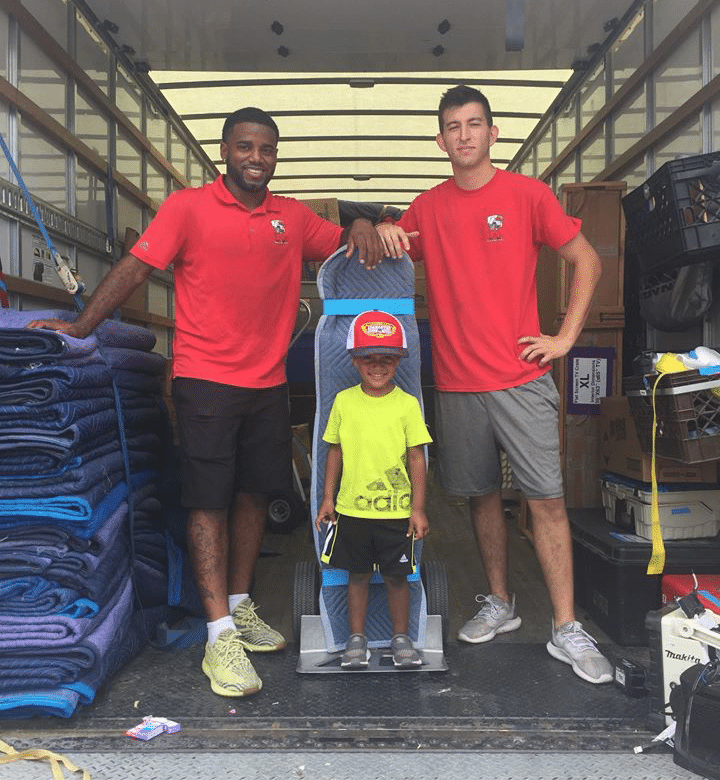Planning Your Big Day
For nearly two decades, Adamantine Spine’s movers have been helping Iowans settle into their new homes. We’re excited to share some of our most helpful moving tips gathered from countless jobs—some of which might surprise you!
Spine Spotlight
It can get pretty lonely when you're driving across the country. But having a road dog in the passenger seat can help! Wink the one-eyed beagle joined crew leader Cliff Wallace as he drove down to Arizona last week. She can't lift a dresser or wrap a couch, and she sleeps most of the time, but she's pretty cute so we keep her on payroll anyway 🐶


Moving Green
Reduce, reuse, and recycle: great buzzwords and a solid plan for a green move! Tackle your home room by room to decide what to keep, give away, sell, or toss. For packing, opt for boxes made from 100% recycled fibers or, even better, ones that have been used before. If you move with us, we’ll pick up your standard-sized boxes for free and give them a second life. Can’t return your boxes? Be sure to recycle! Also, consider using eco-friendly cleaning products for your move-in and move-out. And don’t forget to hire a mover that uses 100% biodiesel made from waste vegetable oil!
Safe Moving Tips
The two biggest safety risks during a move are the twenty-ton moving truck we operate and heavy household possessions, like armoires, pianos, and treadmills (but only when we’re carrying them).
Dangers For Kids & Pets
Kids and pets love being part of the action, but moving day can be risky for them. If you can, arrange for a relative, friend, or sitter to watch them off-site. If that’s not possible, ensure close adult supervision. If a child happens to wander onto the truck, our crew will stop work immediately to prioritize their safety.
Severe Weather Hazards
Movers face two main weather risks: dehydration from summer heat and slips from winter snow and ice. We bring our own water, but on hot days, we can go through 2 gallons each (we sweat a lot!). In winter, please help us out by keeping your driveway and walkways clear. Thanks for looking out for our safety!
Hazardous Material
Households often contain caustic, flammable, explosive, or hazardous materials that threaten the safety of people, animals, property, and the environment if not handled and disposed of properly. Household movers, including Spine Moving, are prohibited by law from transporting these items.

View Our Moving Checklist!
We’re here to make your move worry-free! Check out our handy checklist for before, during, and after your move.
We’re here to make your move worry-free! Check out our handy checklist for before, during, and after your move.
Moving With Children
Moving can be tough for kids—they often feel out of control and have fewer coping skills. So, break the news about the move early! A lot of stress comes from the unknown, so keep family routines and rituals as normal as possible. Get your kids involved in packing, and after the move, spend time exploring your new home, school, and neighborhood together!

Helpful Packing Tips
Packing an entire house can be overwhelming. If you are packing household items yourself, keep these tips in mind.
Pack room-by-room
Packing room-by-room keeps similar items together. Don’t forget those easy-to-miss spots, like under the bed, back of built-ins, and closet corners!
Heavy items go in small boxes
Pack heavy items, like books and gold bars, in smaller boxes, while lighter items go in larger ones. Here’s a quick guide: small boxes for books and canned goods, medium for kitchen appliances, and large for plastics, clothing, and bedding!
Pack boxes firmly
Pack boxes tightly from bottom to top, leaving no empty space. This prevents crushing when stacked and keeps your items safe and sound!
Pad your fragile items
Use towels, linens, and curtains as padding for fragile items to prevent breakage. When you run out of "locally-sourced" padding, just grab some packing paper!
Leave clothing/light items inside furniture
Leaving clothes, blankets, and comforters inside dressers and chests help to save packing labor.
Heavy items go at the bottom of the box
Place heavier items in the bottom of the box and lighter items on top. This helps weight the boxes properly and provides better protection for your items.
Leave hanging clothes hanging
No need to pack your hanging clothes, leave them hanging and pack in wardrobe boxes. If there's space on the bottom, use that fort shoes or comforters.
Reinforce your boxes
Reinforce the bottom and top of each box with at least three strips of packing tape along the middle seams. If you want to be extra safe, tape the seams running along the edges of the box as well.

